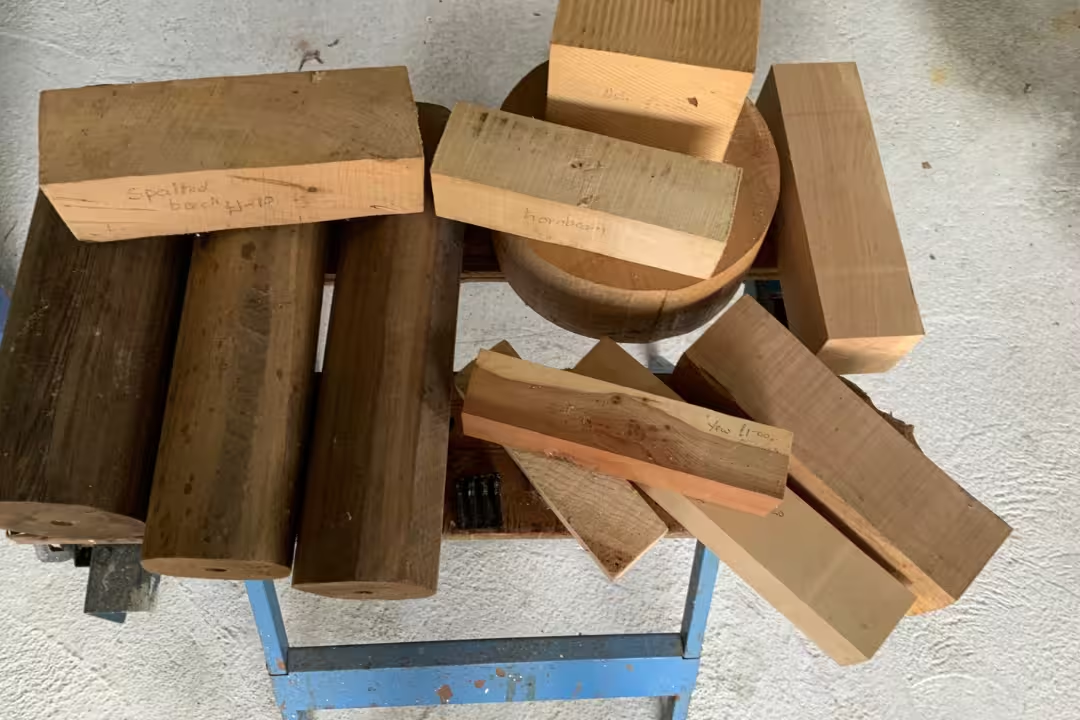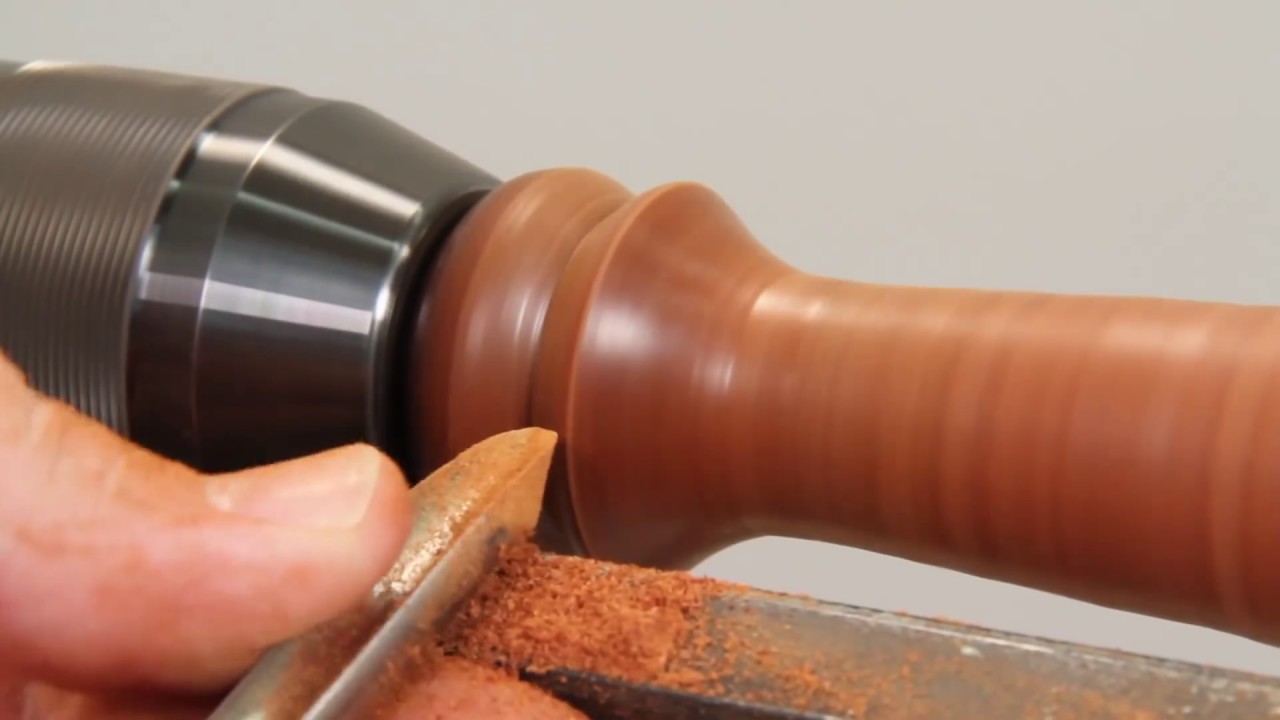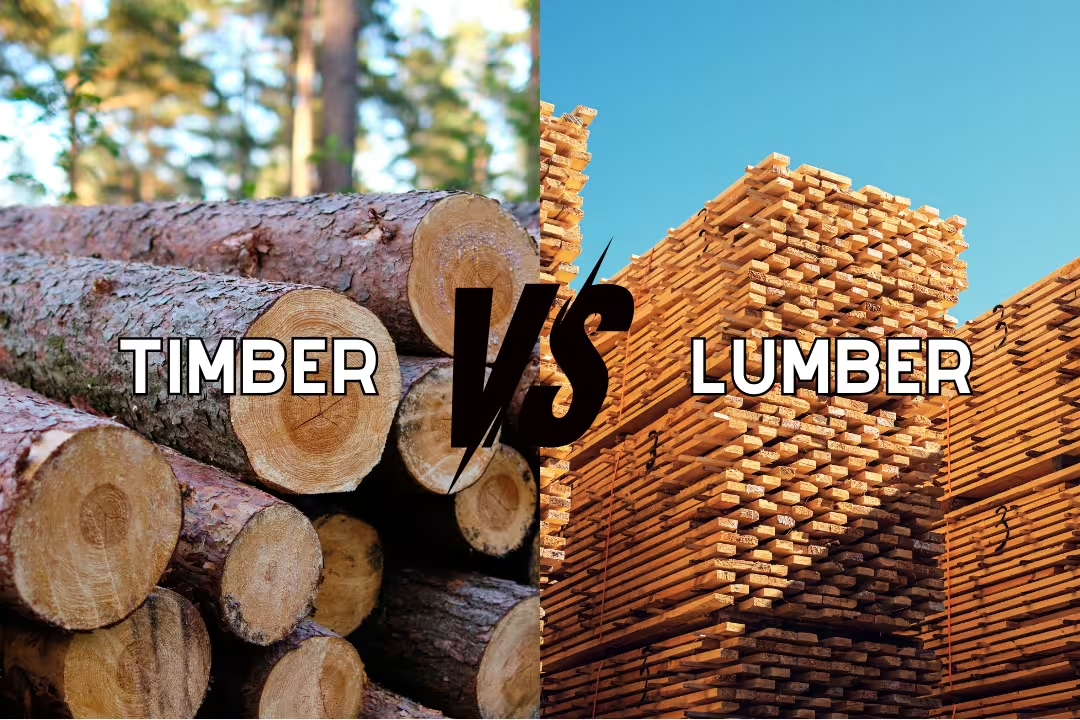
Discover the Best Deals on Wood Turning Blanks

Ever wondered why some wood projects look flawless while others fall flat? The secret often lies in the quality of wood turning blanks used. Choosing the right blanks can make a world of difference in your bowl turning, pen making, or spindle work. Let’s explore the best deals and see how they can elevate your woodworking game.
Table of Contents
Wood turning blanks are pre-cut pieces of wood made for lathe work. They give woodworkers materials that are ready to turn into bowls, pens, spindles, and decorative projects. You can save up to 81% on premium blanks. Prices start at $1.16 for domestic maple and go up to $36.00 for exotic Indian Ebony. This year offers great value for both new and experienced turners.
Types of Wood for Turning Blanks
Domestic Wood Turning Blanks
Domestic species provide reliable performance and consistent results for most turning projects. Maple stands out with its smooth grain pattern, making it perfect for bowls and platters that require clean finishes. The light color accepts stains beautifully, allowing for custom color matching.
Black walnut delivers rich chocolate tones that create dramatic contrast in segmented work. Its moderate hardness machines easily while producing stunning natural patterns. Cherry develops a warm patina over time, transforming from pale pink to deep reddish-brown with age and light exposure.
Oak offers classic appeal with pronounced grain patterns that add character to turned pieces. Its durability makes it suitable for functional items like tool handles and kitchen utensils. These domestic options typically cost less than exotic alternatives while providing excellent workability.
Exotic Wood Turning Blanks
Exotic species bring unique colors and distinctive grain patterns that domestic woods can’t match. Zebrawood creates striking striped patterns, while Purpleheart maintains its vibrant purple hue long after turning. Padauk starts orange-red and deepens to rich brown over time.
Premium varieties like Ebony and Rosewood command higher prices but deliver exceptional density and fine texture. Ironwood species offer extreme hardness for specialized projects requiring durability. These exotic options require sharper tools and more careful handling but reward turners with outstanding visual appeal.
Top 5 Wood Turning Blanks Recommendations for 2026
I’ve selected these top-performing blanks based on quality, value, and versatility for different turning projects.

Premium Black Walnut Turning Squares
- High-quality black walnut for woodworking
- Consistent size for uniform projects
- Ready for turning right out of the box
- Perfect for small to medium creative works
- Rich, dark color enhances the final product

Black Walnut Turning Square Set
- Refined black walnut pieces
- Suitable for diverse woodworking tasks
- Pre-cut for immediate use
- Strong and sturdy material
- Beautiful finish enhances wood lathe projects

Elegant Cherry Turning Blanks
- High-quality cherry wood with rich hues
- Ideal for diverse wood projects
- Uniform size for precision crafting
- Durable and versatile material
- Smooth surface for easy turning

Creative Wood Cutoff Scraps Box
- Ideal for DIY and crafting projects
- A variety of wood types included
- Great for small-scale experiments
- Enjoy sustainable crafting with defect cutoffs
- Full of possibilities for creative minds

Ironwood Exotic Wood Blanks
- Dense and durable ironwood for projects
- Fine texture offers smooth finishes
- Stable material reduces warping risks
- Perfect for custom woodturning
- Versatile uses in various craft applications
Price Ranges and Best Deals for 2026
Discount opportunities reach up to 81% on select premium blanks during seasonal sales events. Wood Turners Catalog and Exotic Wood Zone frequently offer substantial savings on both domestic and exotic species.
Domestic wood pricing remains budget-friendly with maple starting at $1.16 per blank. Hard Maple and Basswood typically cost under $2, making them perfect for practice projects and volume work. These affordable options don’t sacrifice quality for price.
Exotic wood ranges vary significantly based on rarity and size. Spalted Tamarind begins around $8.50, while premium Indian Ebony can reach $36.00 per piece. Black & White Ebony, Olivewood, Cherry, and Walnut fall between these extremes, offering mid-range pricing for specialty projects.
What to Look For When Buying Wood Turning Blanks

Quality and Condition
Kiln-dried stability prevents warping, cracking, and dimensional changes during turning. Woodcraft emphasizes that properly dried blanks maintain their shape and reduce tool chatter. Check moisture content specifications before purchasing.
Uniform dimensions and optimal grain orientation save preparation time and improve turning results. Look for blanks with consistent thickness and square edges. Avoid pieces with obvious defects unless you’re specifically seeking character wood with natural imperfections.
Size and Dimensions
Common sizes range from small pen blanks at 3/4″ x 3/4″ x 5″ to large bowl blanks measuring 12″ x 12″ x 4″ or larger. NC Woodworker forums discuss sizing considerations for different project types.
Match blank dimensions to your specific project requirements. Pen turning needs smaller, precise cuts while bowl work requires substantial thickness. Order slightly oversized blanks to accommodate design changes and turning mistakes.
Species Selection and Sustainability
Consider aesthetics, workability, and intended use when selecting species. Softer woods like basswood turn easily but may not hold fine details. Harder species like maple provide crisp edges but require sharper tools and more skill.
FSC-certified options and responsibly sourced materials support sustainable forestry practices. Many suppliers now offer eco-friendly alternatives that don’t compromise on quality. Check supplier certifications and sourcing policies before large purchases.
Where to Find the Best Deals on Wood Turning Blanks
Online specialty retailers host seasonal sales with savings up to 81% on premium exotic and domestic wood turning blanks. Many suppliers offer promotional deals like “Buy One, Save 25% on the Second Product” along with free shipping thresholds.
Volume discounts become available for bulk purchases, making them cost-effective for production work or group projects. Woodworkers Source provides quantity pricing that reduces per-piece costs significantly.
Local sawmills and woodworking stores often stock large-size kiln-dried domestic blanks at competitive prices. These sources allow hands-on inspection before purchase and may offer custom cutting services. Building relationships with local suppliers can lead to advance notice of new inventory.
Subscription newsletters from reputable retailers alert subscribers about flash deals and new inventory releases. Sign up for multiple supplier newsletters to catch limited-time offers on premium species.
Current Trends and Popular Sizes
Increased demand for exotic species in pen turning and decorative lathe projects drives innovation in blank preparation and sizing. Turners seek unique grain patterns and vibrant colors that stand out in finished pieces.
Popular dimensions include 1.75″ to 2″ squares for pens and spindles, while bowl work typically requires 6″ x 6″ x 3″ or larger blanks. Custom orders accommodate unique requirements for specialized projects and artistic pieces.
Variety packs and scrap boxes appeal to hobbyists seeking budget-friendly experimentation opportunities. These mixed collections introduce turners to new species without the commitment of full-size blanks, promoting sustainable use of mill cutoffs.
Frequently Asked Questions About Wood Turning Blanks
- Best wood species for beginners: Maple and cherry offer ease of turning, affordability, and predictable finishing characteristics that build confidence in new turners.
- Benefits of kiln-dried blanks: Improved stability and reduced warping or splitting during and after turning, leading to more successful projects and less waste.
- Working with exotic species: Many exotic woods are denser and may require sharper tools, but they provide outstanding finishes and exceptional visual appeal worth the extra effort.
- Selecting the right size: Match blank dimensions to your project type – pens need smaller precise cuts, while bowls, platters, and decorative pieces require substantial thickness and width.
FAQs
What Are Wood Turning Blanks Used For?
Wood turning blanks are used as the starting material for woodturning projects. They are the raw pieces of wood that you mount on a lathe to create various wooden objects like bowls, pens, and other decorative or functional pieces. They are available in different shapes and sizes depending on the intended project.
How Do You Prepare Wood Turning Blanks?
Preparing wood turning blanks involves selecting the right piece of wood, ensuring it is properly dried to reduce moisture content, and cutting it to the appropriate size and shape for your lathe project. You may also need to seal the ends to prevent cracking during the drying process. It’s important to use sharp tools when preparing the blanks to ensure smooth surfaces and precise cuts.
Where Can I Buy Quality Wood Turning Blanks?
Quality wood turning blanks can be purchased from specialty woodworking stores, online marketplaces like Etsy or Amazon, or directly from lumber yards that specialize in woodturning supplies. Buying from reputable sources ensures you get high-quality blanks that are suitable for your projects.
What Is The Best Type Of Wood For Turning Blanks?
The best type of wood for turning blanks depends on the project and your personal preferences. Hardwoods, such as maple, cherry, and oak, are popular due to their durability and finish. Exotic woods like ebony and cocobolo are also prized for their unique colors and grain patterns. Always consider the wood’s hardness, grain, and workability when selecting your blanks.
How Do You Maintain Wood Turning Blanks To Prevent Cracking?
To maintain wood turning blanks and prevent cracking, store them in a controlled environment with consistent humidity levels. Sealing the ends with wax or anchorseal can help minimize moisture loss. Regularly checking their condition and moisture content can also prevent issues over time. It’s crucial to use them while they are still in optimal condition.












